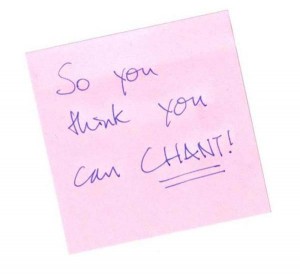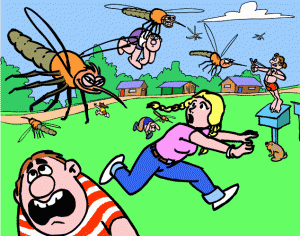This entry was posted on Saturday, October 3rd, 2009 . You can follow any responses to this entry through the RSS 2.0 feed. You can leave a response, or trackback from your own site.
|
|

Here’s the fifth question from the devotees in the CIS, which is in two parts:
Question 5-1.
Hare Krishna, dear Hari Sauri prabhu! Please, accept my humble obeisances!
Please, tell me what can be done if I want to take a daily service to Sri Krishna, to go to lectures, attend programs and participate in sankirtana, but reading the morning japa is not going well. If this oblation make my body feel bad, and I’ m not rather of myself, because “bad” thoughts all time go to my mind, and the feeling of happiness at the end of the 4th circle is not always achieved, and if achieved, then quickly disappears, and sometimes I cannot even read the 3 laps? Although I can easily read 4-8 rounds in daily or evening time mentally.
Answer:
The basis for all our other service is the chanting of the Holy names.

Srila Prabhupada prescribed the chanting of a minimum 16 rounds per day if we want to make steady advancement. We can judge whether we are making progress by our desire and ability to chant at least 16 rounds daily. In Chaitanya Caritamrta Srila Prabhupada says that if we cannot chant 16 rounds daily we are in a diseased condition of spiritual life.
There is a cartoon Srila Prabhupada once saw in an American newspaper. An old man and an old woman were sitting on a park bench watching a group of devotees chanting. The old woman turned to the old man and said, “Chant, chant, chant!” The old man replied, “Can’t, can’t, can’t!” Srila Prabhupada cited this in a class and to the laughter of the devotees he said that unless one is on the liberated platform, he cannot chant the Holy Names. So conversely, if we are chanting regularly, then we should know we are on the transcendental platform.
So I would recommend that before any other service, your chanting should come first. And then whatever you can do after that is fine.
If you feel that your chanting is artificial and you often don’t have any feeling for it, it doesn’t matter. In the beginning we may not have a higher taste and it may be difficult to chant. But by practice you can gradually develop a good taste for it.
The example is given of a man who has jaundice. When you have jaundice you lose your taste for sugar; in fact it becomes very bitter–actually the sugar is not bitter but the diseased man’s taste is distorted so that it seems bitter. Nevertheless, eating rock sugar is the cure for jaundice. As the disease diminishes, the taste of the suger comes back. When the man is healthy, the sugar again tastes very sweet. Similarly, we are in a diseased condition of material existence and we do not like to glorify and take shelter in the Holy Name, which is Krsna Himself. Still we should chant because chanting is both the means (cure) and the goal.
Even if it feels artificial, it will still act because the Holy Name is real, it is not an illusion. It is our bitter perception and our disturbed mind that is not real and that has to be changed. By constant chanting the change will come naturally.
Question 5-2:
And also, please, give me advice about mosquito problem. There are bugs around my place and every summer evening, in spite of any efforts, the mosquitos penetrate into the apartment. It is impossible to suffer them but having knowledge to use different fumigator is unpleasant.
Answer:
Srila Prabhupada advised us not to kill any living being if we can avoid it. However, if we are attacked,

we can defend ourselves.

When I was with Srila Prabhupada we used a number of methods to stop them attacking His Divine Grace while he was translating in the night:
[From Transcendental Diary Vol 1]
January 18 1976 – Mayapur
In the early evening, just on dusk, a few of the senior devotees and myself were sitting with Prabhupada in his room, conversing. From a distance and gradually drawing nearer, we heard the loud trumpeting of a conch shell accompanied by bell ringing and the chanting of mantras. Bhavananda Maharaja laughed and told Prabhupada it was Anantarama Sastri, an Indian devotee in his mid-twenties who joined us last year with three other sastris. Unfortunately the others left, but he has stayed on. As his name implies, he is very knowledgeable in the scriptures and well-versed in the performance of various types of puja. He can also quote practically any Sanskrit verse from memory.
Bhavananda explained that each evening as the sun goes down, he tours the building, floor by floor, with a bell, conch, and a large, clay incense burner, chanting various mantras to keep away ghosts and other subtle beings.
The sound grew louder and Prabhupada smiled in welcome as Sastri entered his room in a cloud of frankincense, the reverberations of the conch temporarily drowning out our conversation. It was an impressive ritual, made more so by Sastri’s ability to both blow air through his mouth and suck it in through his nose at the same time, thus keeping the conch blowing uninterruptedly for several minutes. He walked around both rooms, waving a bamboo fan over his clay bowl to disperse the fragrant smoke. It also acts as an effective mosquito repellent. After a couple of minutes he respectfully backed out the door and continued his nightly round.
January 27 1976 – Mayapur
Sometimes during his evening massage Prabhupada chats a little before sleeping. This evening as he lay on his bed in the quiet semi-darkness, with me perched cross-legged alongside him, he asked if there were any mosquitos inside his net. “It is such a cruel animal,” he said.
I asked if the living entity obtained that sort of body because it desired to harm others.
Prabhupada said, “Yes, it wants to drink the blood of others, so it is given facility. But only a very small body so it can only take less than a drop. It has one pipe, and in less than a second it can immediately penetrate the skin, so wonderful is its creation.” But he added that still, nature has an arrangement whereby before biting, the mosquito buzzes in the ear just to warn its victim: ‘I am here.’ “The scientists cannot make even one such mosquito, yet they claim God does not exist,” he said.
Every night when Srila Prabhupada takes his rest, Anakadundubhi comes into Prabhupada’s work room to set up a very large, square net over his desk and asana so that he can translate in the night without botheration. The net is almost like a small tent, and sometimes mosquitos get trapped inside it during its erection. Therefore I have developed the habit of checking it after finishing Srila Prabhupada’s massage in the bedroom. I sit inside it for a minute or so and capture and remove any that may have been trapped.
Last evening I was attempting to remove a couple of the unfriendly insects when, to my surprise, Prabhupada also entered under the protective canopy to begin his night’s work. He was sitting behind his desk unperturbed as I, on my hands and knees on the other side, tracked down one last mosquito. I had his woollen cap in my hand, using it as a swatter. Seeing my prey settled high up in one corner of the net, I swung. “Whap!” The tiny body fell to the ground, apparently dead. I wasn’t too happy at having killed it, but what could be done? If it wasn’t removed, it would bite Srila Prabhupada all night, disturb his translation work, and maybe even give him malaria. I picked up the corpse and tossed it out from under the net. It landed a few inches away on the clean white sheets. Prabhupada silently watched the whole procedure.
Suddenly, as we both looked on, it stirred, shook its wings and flew off. It wasn’t dead after all. Srila Prabhupada gave a happy exclaim, “Ah! Hare Krsna!” He was very pleased to see that I had only stunned my quarry.
I too was happy and became more so when he narrated a similar history of his own. “I also did this. One insect was buzzing; it was very annoying, and I gave it a slap and it fell down.” His face softened with compassion and regret. “Then I was very sorry, ‘Oh! I have killed this poor creature.’ But suddenly it got up and flew off. Oh! Then I was very glad!”
His remembrance gave me another revealing glimpse of Srila Prabhupada’s kindness and concern for every living being, even those that might be aggressors. I felt happy to have escaped an offense to the mosquito and privileged to have shared a moment of intimate confession with Srila Prabhupada.
[end quotes]
Generally the best way to deal with your mosquito problem is to sleep within a good mosquito net; that will keep them out without taking drastic measures. Another system is to smear one’s body with cream or oil or some spray-on chemical to repel the mosquitos.
Another method is to eat certain kinds of foods which make your body less tasty to the mosquitos. Here’s a few methods from the internet:
Source: http://chemistry.about.com/cs/howthingswork/a/aa050503a.htm
Mosquito Attractants
Use this list of items and activities that attract mosquitoes as a list of things to avoid or that can be used as bait to lure mosquitoes away from you.
Dark Clothing
Many mosquitoes use vision to locate hosts from a distance. Dark clothes and foliage are initial attractants.
Carbon Dioxide
You give off more carbon dioxide when you are hot or have been exercising. A burning candle or other fire is another source of carbon dioxide.
Lactic Acid
You release more lactic acid when you have been exercising or after eating certain foods (e.g., salty foods, high-potassium foods).
Floral or Fruity Fragrances
In addition to perfumes, hair products, and scented sunscreens, watch for the subtle floral fragrance from fabric softeners and dryer sheets.
Skin Temperature
The exact temperature depends on the type of mosquito. Many mosquitoes are attracted to the slightly cooler temperatures of the extremities.
Moisture
Mosquitoes are attracted by perspiration because of the chemicals it contains and also because it increases the humidity around your body. Even small amounts of water (e.g., moist plants or mud puddles) will draw mosquitoes. Standing water also allows mosquitoes to reproduce.
Natural Repellents
It’s very easy to make your own natural mosquito repellent. These natural products will effectively repel mosquitoes, but they require more frequent reapplication (at least every 2 hours) and higher concentrations than DEET. Because of the differences between types of mosquitoes, products that contain multiple repellents tend to be more effective than those containing a single ingredient. As you can see, natural repellents tend to be volatile plant oils.
Citronella Oil
Lemon Eucalyptus Oil
Cinnamon Oil
Castor Oil
Rosemary Oil
Lemongrass Oil
Cedar Oil
Peppermint Oil
Clove Oil
Geranium Oil
Possibly Oils from Verbena, Pennyroyal, Lavender, Pine, Cajeput, Basil, Thyme, Allspice, Soybean, and Garlic
Another plant-derived substance, pyrethrum, is an insecticide. Pyrethrum comes from the flowers of the daisy Chrysanthemum cinerariifolium.
Things that Lower Repellent Effectiveness
Many Sunscreens
Dilution from Rain, Perspiration, or Swimming
Absorption into the Skin
Evaporation from Wind or High Temperatures
Keep in mind that ‘natural’ does not automatically imply ‘safe’. Many people are sensitive to plant oils. Some natural insect repellents are actually toxic. Therefore, although natural repellents provide an alternative to synthetic chemicals, please remember to follow the manufacturer’s instructions when using these products.
[end quote]
And also, can you give me some blessing ? I m from small town, and I have entered to institute and now I must live in dormitory in Ekaterinburg, and I am afraid it as living in a big city.
I am very happy to hear that despite your living difficulties you are pursuing your Krsna consciousness. May Srila Prabhupada bless you with eagerness and enthusiasm for pursuing your spiritual life. If you make one step towards Krsna, He takes ten steps towards you. Don’t worry about the inconveniences of your living conditions. Rather, see them as an impetus provided by Krsna for your taking to spiritual life seriously.
I m sorry if I disturb you with my questions or give you some dissatisfaction, or you find my question too materialistic.
Srila Prabhupada ki Jay!
You questions are very nice and its certainly no trouble to answer them.
Your humble servant,
Hari-sauri dasa
You must be logged in to post a comment.
